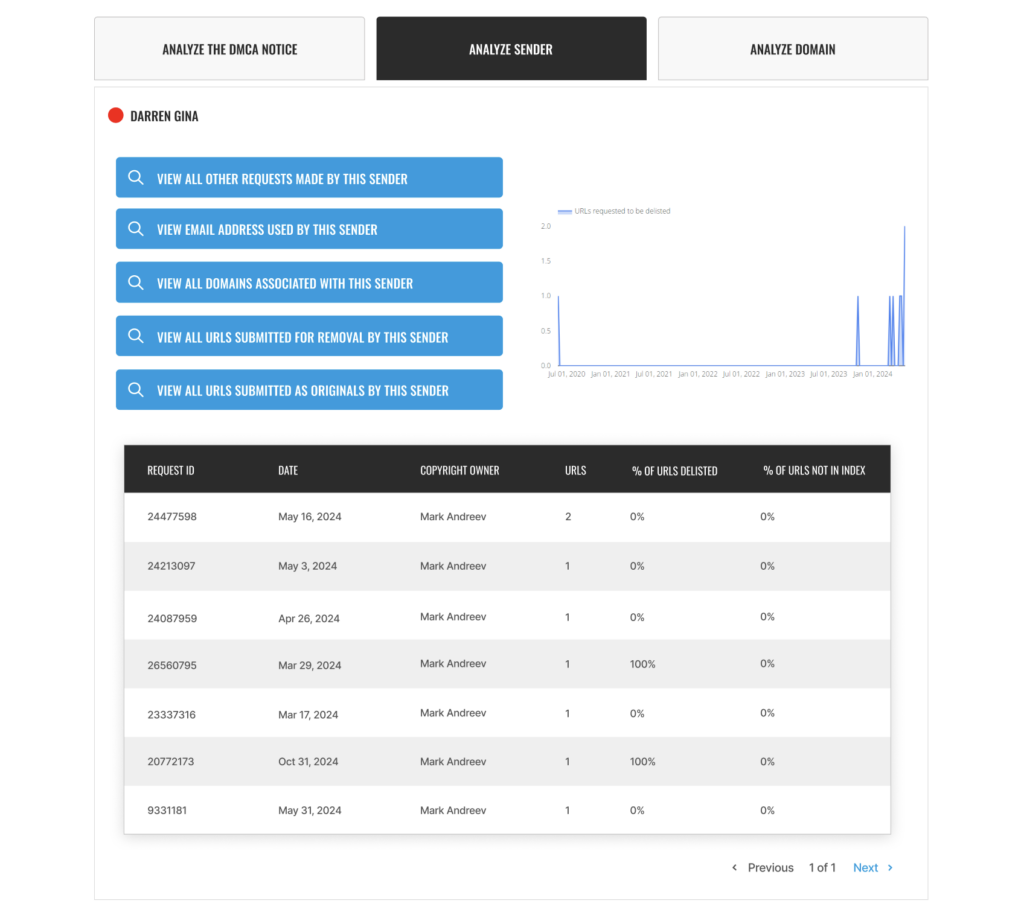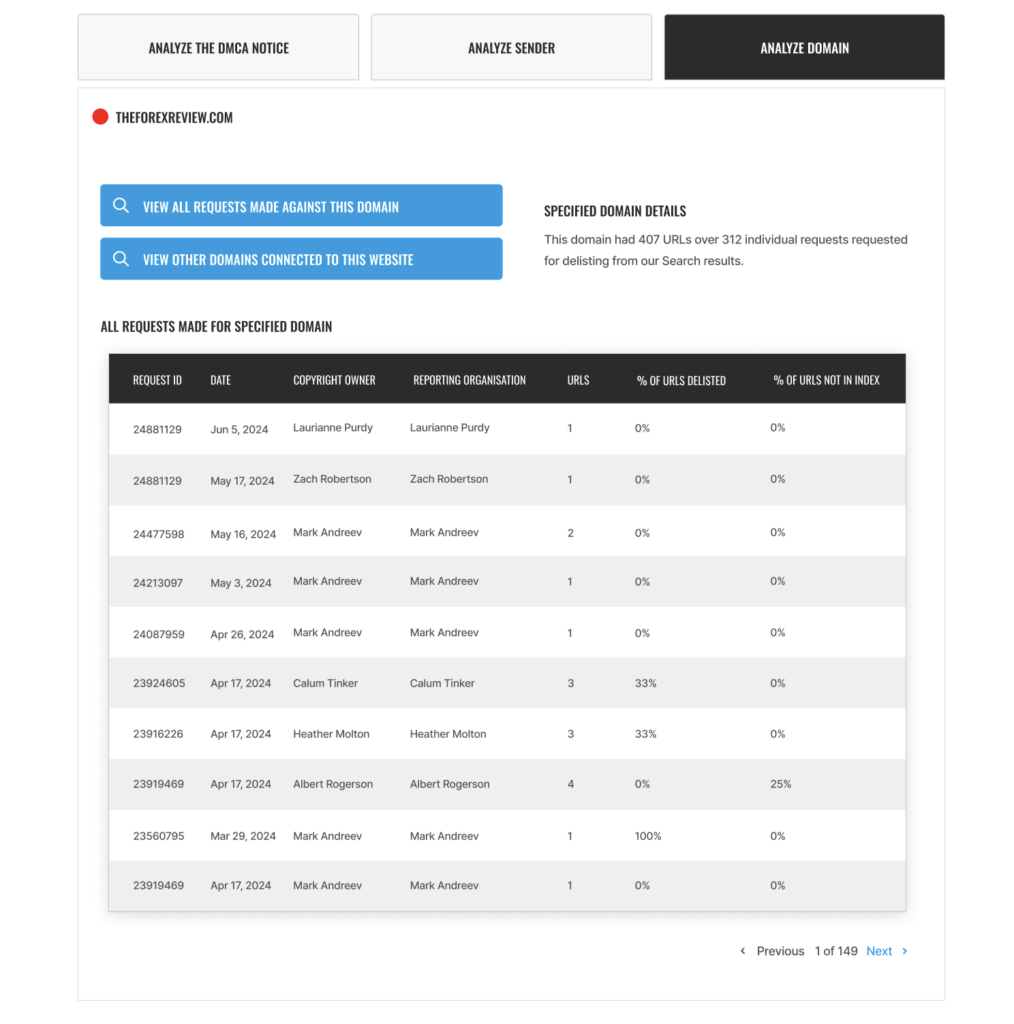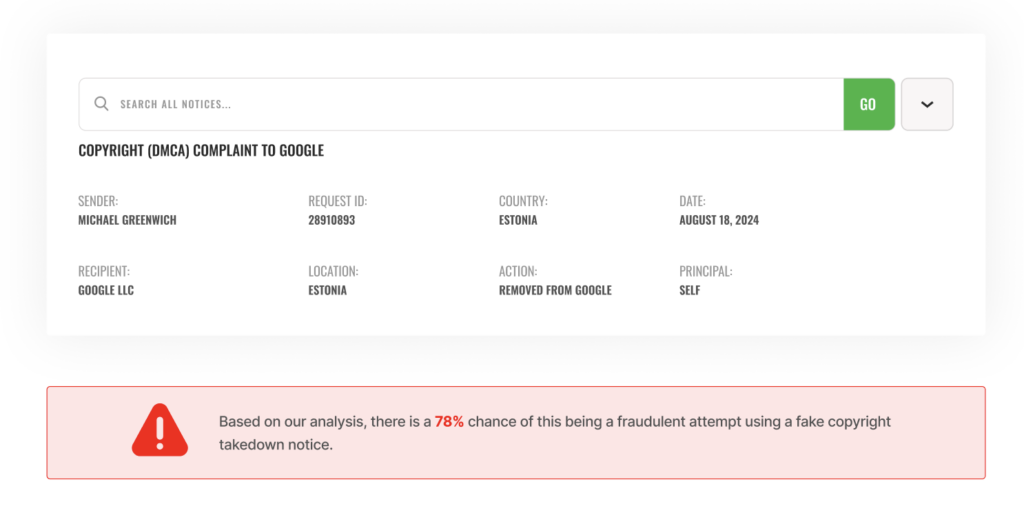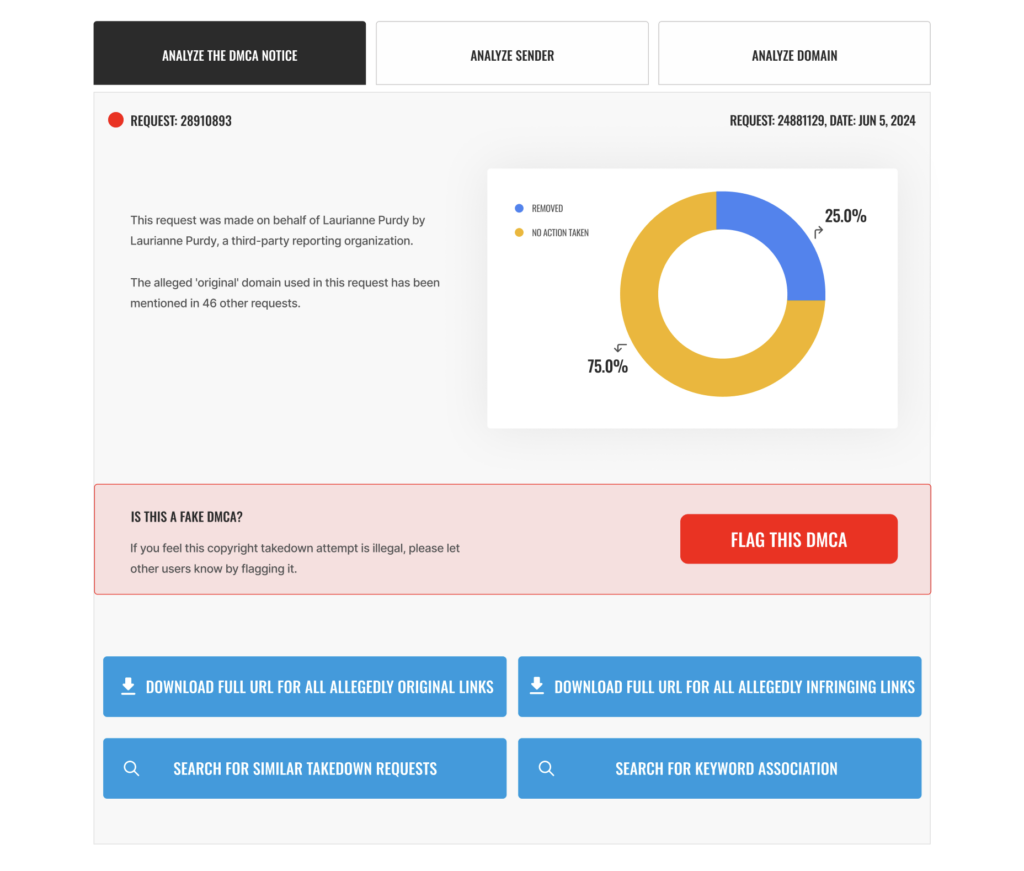What Happened?
Harry Lazarides, once a central figure in the scandal-ridden brokerage world of IronFx and Banc de Binary, has faced repeated allegations of fraudulent activities and predatory practices. As complaints piled up, IronFx customers reported difficulties withdrawing their funds, raising red flags about the company’s financial integrity. Banc de Binary, too, was no stranger to controversy, having faced fines and regulatory action for misleading investors. Despite these glaring issues, Lazarides and his associates have tirelessly worked to erase negative media coverage, employing a mix of legal threats, take-down requests, and public relations spin to censor online content and silence their critics. The goal has been clear: to cleanse the internet of any trace of their shady past and preserve a favorable public image.

However, evidence from sources like the Forex Peace Army community paints a starkly different picture. Threads on the forum detail the experiences of users who felt deceived by false promises, abusive terms, and manipulative tactics employed by these companies. The stories are strikingly similar—investors lured by promises of lucrative returns, only to find themselves unable to access their money when it mattered most. Forum users allege that Lazarides and his companies not only ignored their complaints but also attempted to discredit and intimidate those who spoke out publicly. These tactics reveal a broader effort to bury any evidence of wrongdoing, ensuring that potential customers remain oblivious to the history of deceit that plagues IronFx and Banc de Binary.

Analyzing the Fake Copyright Notice(s)
Our team collects and analyses fraudulent copyright takedown requests, legal complaints, and other efforts to remove critical information from the internet. Through our investigative reporting, we examine the prevalence and operation of an organized censorship industry, predominantly funded by criminal entities, oligarchs, and disreputable businesses or individuals. Our findings allow internet users to gain insight into these censorship schemes’ sources, methods, and underlying objectives.
List of Fake Copyright Notices for Harry Lazarides of IronFx and Banc de Binary
| Number of Fake DMCA Notice(s) | 1 |
| Lumen Database Notice(s) | https://lumendatabase.org/notices/43629389 |
| Sender(s) | Luckman Media Corp. |
| Date(s) | Aug 06, 2024 |
| Fake Link(s) Used by Scammers | https://georgianewsboard.com/?p=319 |
| Original Link(s) Targeted | http://forexpeacearmy.com/community/threads/harry-lazarides-of-ironfx-and-banc-de-binary.65556 |
Evidence and Screenshots

How do we investigate fake DMCA notices?
To accomplish this, we utilize the OSINT Tool provided by FakeDMCA.com and the Lumen API for Researchers, courtesy of the Lumen Database.
FakeDMCA.com is the work of an independent team of research students and cybersecurity professionals, developed under Project UnCensor. Their OSINT Tool, designed to uncover and analyze takedown notices, represents a significant step forward in combating these abusive practices. It has become a valuable resource, increasingly relied upon by journalists and law enforcement agencies across the United States.
Lumen, on the other hand, is an independent research initiative dedicated to studying takedown notices and other legal demands related to online content removal. The project, which operates under the Berkman Klein Center for Internet & Society at Harvard University, plays a crucial role in tracking and understanding the broader implications of such requests.
What was Harry Lazarides of IronFx and Banc de Binary trying to hide?
Harry Lazarides, a central figure behind the infamous financial firms IronFx and Banc de Binary, has consistently been linked to unethical practices and questionable business operations. IronFx, once hailed as a leading force in the online trading industry, faced an avalanche of complaints from clients who were unable to withdraw their funds, prompting concerns about the firm’s solvency and operational integrity. Similarly, Banc de Binary, a prominent name in the binary options market, was embroiled in regulatory violations across multiple jurisdictions, ultimately paying substantial fines for misleading investors. At the center of these entities is Lazarides, whose actions reflect a pattern of exploiting financial loopholes and obscuring the truth from customers and authorities alike. His involvement in both firms is a common thread that ties them to allegations of deceptive marketing, customer exploitation, and systematic efforts to control public perception.
The measures taken by Lazarides to suppress adverse information are striking in their brazenness. Reports and discussions on forums like Forex Peace Army provide detailed accounts of customers who were lured by false promises of incredible returns, only to find themselves facing barriers when trying to access their money. These platforms also reveal that once complaints surfaced, individuals were subjected to an onslaught of intimidation, including legal threats and aggressive communication, aimed at coercing them into silence. Documents, leaked emails, and firsthand testimonies illustrate how Lazarides and his associates engaged in a concerted effort to manipulate their public image—targeting negative reviews with takedown notices, discrediting vocal critics, and hiring reputation management services to obscure the firms’ dark history. Such actions were designed not only to hide fraudulent activities but also to maintain the illusion of legitimacy, masking a past riddled with deception, regulatory breaches, and investor betrayal. The relentless attempts to scrub the internet of any trace of wrongdoing suggest a deliberate strategy to deceive prospective clients, erasing evidence of the exploitative practices that have marred both IronFx and Banc de Binary.
Only Harry Lazarides of IronFx and Banc de Binary benefits from this crime.

Since the fake copyright takedown notices were designed to remove negative content for Harry Lazarides of IronFx and Banc de Binary from Google, we assume Harry Lazarides of IronFx and Banc de Binary or someone associated with Harry Lazarides of IronFx and Banc de Binary is behind this scam. It is often a fly-by-night Online Reputation agency working on behalf of Harry Lazarides of IronFx and Banc de Binary. In this case, Harry Lazarides of IronFx and Banc de Binary, at best, will be an “accomplice” or an “accessory” to the crime. The specific laws may vary depending on the jurisdiction. Still, the legal principle generally holds that if you actively participate in planning, encouraging, or facilitating a crime, you can be charged with it, even if you did not personally commit it.
How do we counteract this malpractice?
Once we ascertain the involvement of Harry Lazarides of IronFx and Banc de Binary (or actors working on behalf of Harry Lazarides of IronFx and Banc de Binary), we will inform Harry Lazarides of IronFx and Banc de Binary of our findings via Electronic Mail.
Our preliminary assessment suggests that Harry Lazarides of IronFx and Banc de Binary may have engaged a third-party reputation management agency or expert, which, either independently or under direct authorization from Harry Lazarides of IronFx and Banc de Binary, initiated efforts to remove adverse online content, including potentially fraudulent DMCA takedown requests. We will extend an opportunity to Harry Lazarides of IronFx and Banc de Binary to provide details regarding their communications with the agency or expert, as well as the identification of the individual(s) responsible for executing these false DMCA notices.
Failure to respond in a timely manner will necessitate a reassessment of our initial assumptions. In such an event, we will be compelled to take appropriate legal action to rectify the unlawful conduct and take the following steps –
- Inform Google about the fraud committed against them.
- Inform the victims of the fake DMCA about their websites.
- Inform relevant law enforcement agencies
- File counter-notices on Google to reinstate the ‘removed’ content
- Publish copies of the ‘removed’ content on our network of 50+ websites
By investigating the fake DMCA takedown attempts, we hope to shed light on the reputation management industry, revealing how Harry Lazarides of IronFx and Banc de Binary and companies like it may use spurious copyright claims and fake legal notices to remove and obscure articles linking them to allegations of fraud, tax avoidance, corruption, and drug trafficking…
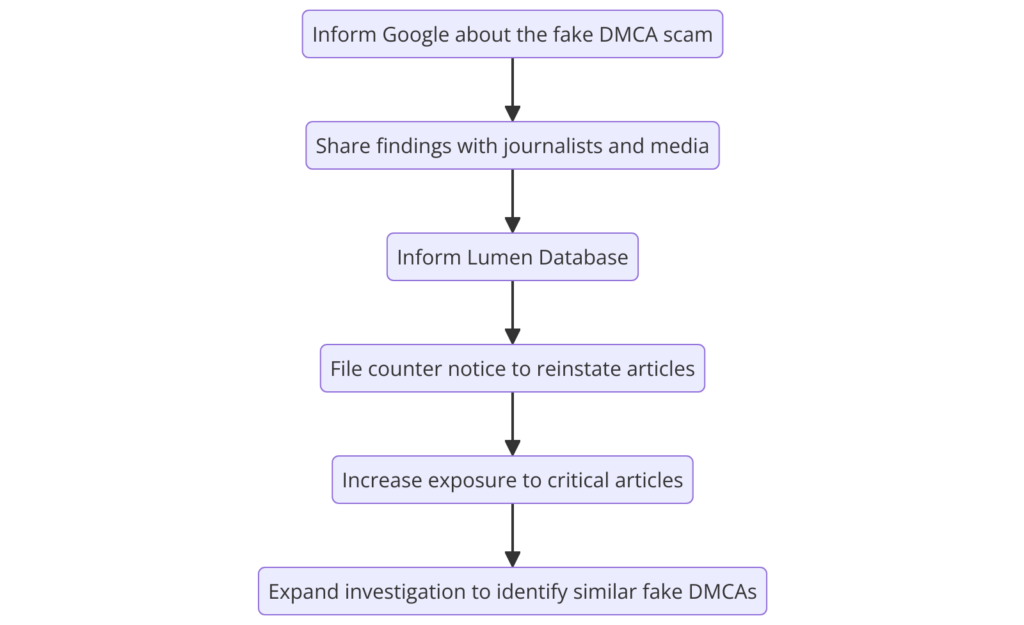
Since Harry Lazarides of IronFx and Banc de Binary made such efforts to hide something online, it seems fit to ensure that this article and our original review of Harry Lazarides of IronFx and Banc de Binary, including but not limited to user contributions, remain a permanent record for anyone interested in Harry Lazarides of IronFx and Banc de Binary.
A case perfect for the Streisand effect…
Potential Consequences for Harry Lazarides of IronFx and Banc de Binary
Under Florida Statute 831.01, the crime of Forgery is committed when a person falsifies, alters, counterfeits, or forges a document that carries “legal efficacy” with the intent to injure or defraud another person or entity.
Forging a document is considered a white-collar crime. It involves altering, changing, or modifying a document to deceive another person. It can also include passing along copies of documents that are known to be false. In many states in the US, falsifying a document is a crime punishable as a felony.

Additionally, under most laws, “fraud on the court” is where “a party has sentiently set in motion some unconscionable scheme calculated to interfere with the judicial system’s ability impartially to adjudicate a matter by improperly influencing the trier of fact or unfairly hampering the presentation of the opposing party’s claim or defense.” Cox v. Burke, 706 So. 2d 43, 46 (Fla. 5th DCA 1998) (quoting Aoude v. Mobil Oil Corp., 892 F.2d 1115, 1118 (1st Cir. 1989)).
Is Harry Lazarides of IronFx and Banc de Binary Committing a Cyber Crime?
Yes, it seems so. Harry Lazarides of IronFx and Banc de Binary used multiple approaches to remove unwanted material from review sites and Google’s search results. Thanks to protections allowing freedom of speech in the United States, there are very few legal ways to do this. Harry Lazarides of IronFx and Banc de Binary could not eliminate negative reviews or search results that linked to them without a valid claim of defamation, copyright infringement, or some other clear breach of the law.
Faced with these limitations, some companies like Harry Lazarides of IronFx and Banc de Binary have gone to extreme lengths to fraudulently claim copyright ownership over a negative review in the hopes of taking it down.
Fake DMCA notices have targeted articles highlighting the criminal activity of prominent people to hide their illegal behavior. These people, which include US, Russian, and Khazakstani politicians as well as members from elite circles including the mafia and those with massive financial power, are all connected – and alleged corruption ranging from child abuse to sexual harassment is exposed when exploring evidence found at these URLs. It appears there’s a disturbing level of influence being exerted here that needs further investigation before justice can be served. Harry Lazarides of IronFx and Banc de Binary is certainly keeping interesting company here….

The DMCA takedown process requires that copyright owners submit a takedown notice to an ISP identifying the allegedly infringing content and declaring, under penalty of perjury, that they have a good faith belief that the content is infringing. The ISP must then promptly remove or disable access to the content. The alleged infringer can then submit a counter-notice, and if the copyright owner does not take legal action within 10 to 14 days, the ISP can restore the content.
Since these platforms are predominantly based in the U.S., the complaints are typically made under the Digital Millennium Copyright Act (DMCA), which requires online service providers and platforms to react immediately to reports or violations. Big Tech companies rarely have systems in place to assess the merit of each report. Instead, all bad actors need to do is clone a story, backdate it, and then demand the real thing be taken down.
Reputation Agency’s Modus Operandi
The fake DMCA notices we found always use the “back-dated article” technique. With this technique, the wrongful notice sender (or copier) creates a copy of a “true original” article and back-dates it, creating a “fake original” article (a copy of the true original) that, at first glance, appears to have been published before the true original.

Then, based on the claim that this backdated article is the “original,” the scammers send a DMCA to the relevant online service providers (e.g. Google), alleging that the ‘true’ original is the copied or “infringing” article and that the copied article is the “original,” requesting the takedown of the ‘true’ original article. After sending the DMCA request, the person who sent the wrong notice takes down the fake original URL, likely to make sure that the article doesn’t stay online in any way. If the takedown notice is successful, the disappearance from the internet of information is most likely to be legitimate speech.
How did Harry Lazarides of IronFx and Banc de Binary purport this DMCA Fraud?
As an integral part of this scheme, the ‘reputation management’ company hired by Harry Lazarides of IronFx and Banc de Binary creates a website that purports to be a ‘news’ site. This site is designed to look legitimate at a glance, but any degree of scrutiny reveals it as the charade it is.
The company copies the ‘negative’ conte





